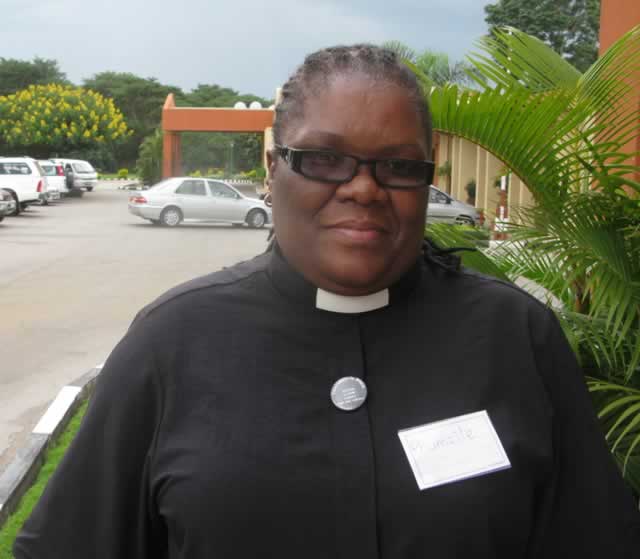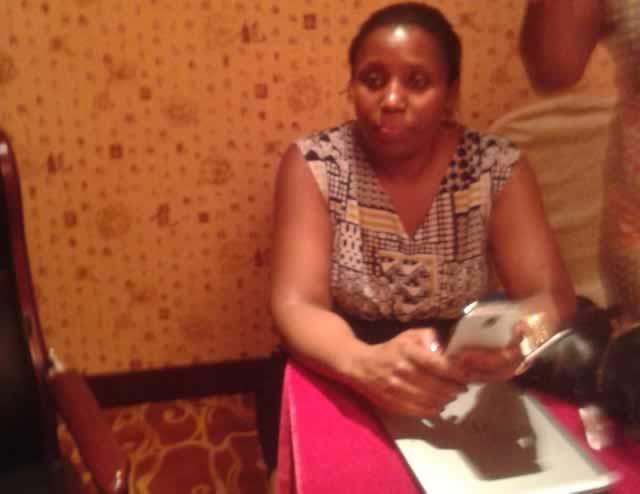Living positively without ARVs
necessary to start ARV treatment.
ART starts when the CD4 count is below 350 as recommended by the World Health Organisation. One can also start ART on the recommendation by a doctor when clinically found to be very ill. A patient in stage 4 of HIV, even in the absence of a CD4 count, is deemed in dire need of anti-retroviral therapy.
This stage usually manifests itself through an HIV positive person getting tuberculosis, pneumonia, developing skin rashes and a host of other opportunistic infections such as thrush, diarrhoea and meningitis.
Zimbabwe has many people who have lived with the disease for a long time and are still not on the drugs. One such person is Ms Olive Mutabeni, who has lived for more than a decade without taking ARVs.
Ms Mutabeni was trained as a State Enrolled Nurse at Wolfson School of Nursing in London, UK, from 1979 to 1981. She returned to Zimbabwe and worked for the Ministry of Health and Child Welfare from 1982 at Shurugwi District Hospital and was subsequently transferred to Kwekwe General Hospital.
She was later transferred to Chitungwiza Central Hospital in 1985 where she worked until 2000.
Olive was the first nurse to break the silence that she was living positively with the disease around 2000.
“The first step after testing HIV positive was to accept my new status. Acceptance is the most important aspect of positive living and without that even medicine is bound to fail,” said Ms Mutabeni.
“I routinely tested patients back then in the 1990s when I was still working as a nurse. I had to undergo an operation so in 1996 that is when I took an HIV test. I was in denial for sometime but my working experience at Chitungwiza Hospital made me change that attitude.
“My biggest challenge was that ARV drugs were not available locally and I had to make do with other remedies. Only the sheer determination to live carried me through,” she said.
“Correct nutrition, a balanced diet of carbohydrates which are found in starchy foods and cereals give energy. Vitamins from fruits and vegetables help fight diseases. Minerals from vegetables like spinach and pumpkins also ward off diseases and keep one strong. Proteins from fish, beans, eggs and milk are essential as they make the body strong.”
Ms Mutabeni said she had to ensure that she had the food for a balanced diet. She started a garden where she grew vegetables. She reared chickens for her family’s needs. She also had support from her mother and her sisters in the UK.
“I did not dwell much on the results but rather went on with my day-to-day living. This was just a diagnosis and I was not ill so I had to be on the guard through healthy eating. I moved from refined foods and started using straight run maize meal, less fat in the foods I ate and cut out sugar from most of the foods I took. I stopped taking fizzy drinks and moved to wholesome orange juice and homemade mahewu,” said Ms Mutabeni.
She had young children and she knew that her children needed her most.
“I knew that I had an irreplaceable value in my children. I had to be there for them to lead a normal life. Today I am a proud grandmother of three. So not only have I seen my children grow up, I am now seeing my grandchildren grow up too,” said Ms Mutabeni.
With the importance she placed on her life, she did not fall ill.
“I told myself that I was going to live and my body responded in the same way because I never fell sick. My mind was occupied with the most important thing, which was raising my children. I helped a lot of patients who tested HIV positive as I was living positively too,” she said.
She said not only was she important to her children but to the patients she counselled as well.
“I placed a double value on myself. The sick patients needed me, so not only was I a pillar to my family but the sick people in my community. I thus started visiting the sick in my community. Even though I had not registered an organisation I gave myself selflessly. What mattered most was the service I gave,” said Ms Mutabeni.
In March 2008 working on a voluntary basis and serving the community of Chitungwiza and other areas of Zimbabwe she founded Life Empowerment Support Organisation. The organisation gained a private voluntary status (PVO 43/11) in 2011.
“I knew that one day I would offer my expertise to living positively and therefore needed to be around so that I would see my dream come to life. Then, there were few support groups and I realised that there was a gap in the care and support section. I was a nurse and was ready to do that voluntarily,” she said.
Ms Mutabeni said she needed more time to execute such a demanding job and that led her to resign from formal employment.
”There was so much suffering in my community, there was limited knowledge on positive living. ARVs were beyond the reach of many and patients had to be taught of acceptance, correct diet, not to dwell on the diagnosis as this led to stress. Stress is a killer and can drain even a healthy person,” said Ms Mutabeni.
”I told the patients I visited that they had to stop taking alcohol and stop smoking. They also had to live in a clean environment. Many of them suffered from TB so alcohol and smoking make a TB patient worse. I cleaned houses for those who were bedridden.”
Ms Mutabeni only started taking ARVs in 2009 after her doctor advised her to do so. “I was started on antiretroviral therapy in 2009. It was not because I was ill but due to stress from my workload. My doctor felt that my CD4 count would go down as I fought for the rights of people living with HIV,” she said.
Ms Mutabeni gave praise to her mother who stood by her and counselled her in times of need. Her mother today refers people to her when she sees someone ill or living in denial.
“While I was at Chitungwiza Central Hospital, I was appointed co-ordinator for Home Based Care and Prevention from Mother to Child Transmission and managed to network with all stakeholders in Chitungwiza.
“That is when I gained community participation when we carried out home visits to bedridden patients and chronically ill clients with Zimbabwe Red Cross which was running home-based programmes. I also linked up with Island Hospice and referred patients to Rokpar for food assistance.
“Patients came to my home for counselling and that inspired me to form an organisation. I did all this with support from my mother, Mrs Dorothy Celani Mutabeni, my daughters Dorothy and Diana, my son Bezel Muchovo and my nephew Method Mutabeni,” said the soft-spoken Mutabeni.
“My children offered me two bedrooms for use as offices then I had to remove all the tenants from the cottages due to demand. I needed more rooms for counselling. I got financial support from my sisters Josephine and Joyce who are abroad since money was hard to come by. Up to now we do not have funding but I thank God for the progress we are making,” she said.
“Mrs Rosa Mufunde, a fellow nurse, later joined me,” she added.
The organisation has seven operational sites initiated by people living within those areas. Operational sites are running in Chitungwiza, Seke North and South districts and Zengeza/St Mary’s and Manyame Park District, Damofalls, Crowborough, Warren Park, Chinhoyi and Chihota. Each branch is manned by six officers and 20 home-based caregivers.
“I am proud to say that Damofalls and Crowborough branches were initiated by Ms Sylvia Nhamo. The Warren Park branch was initiated by Ms Deliar Sereko, a diploma holder in HIV and Aids counselling who was on attachment at LESO from the International Institute for Capacity Development Trust taking.
“The Chinhoyi branch was opened by Mr Hastings Darangwa, who came to our stand during the Harare Agricultural Show and expressed willingness to open a branch in his area. Mudzimurema branch in Seke is the latest operational site being run by Ms T. Chamunorwa,” she said.
SafAids in their handbook titled “How to Stay Healthy and Live Longer with HIV Without Using Antiretroviral Drugs” says: “The will to live is the strongest medicine, the body will respond in a good way and the quality of life will improve. Thus the will to live is the greatest followed by a positive mind, believing in oneself and remembering that you are valuable.”
It is possible to live a healthy normal life before commencing ARVs if you have the will to live.









Comments